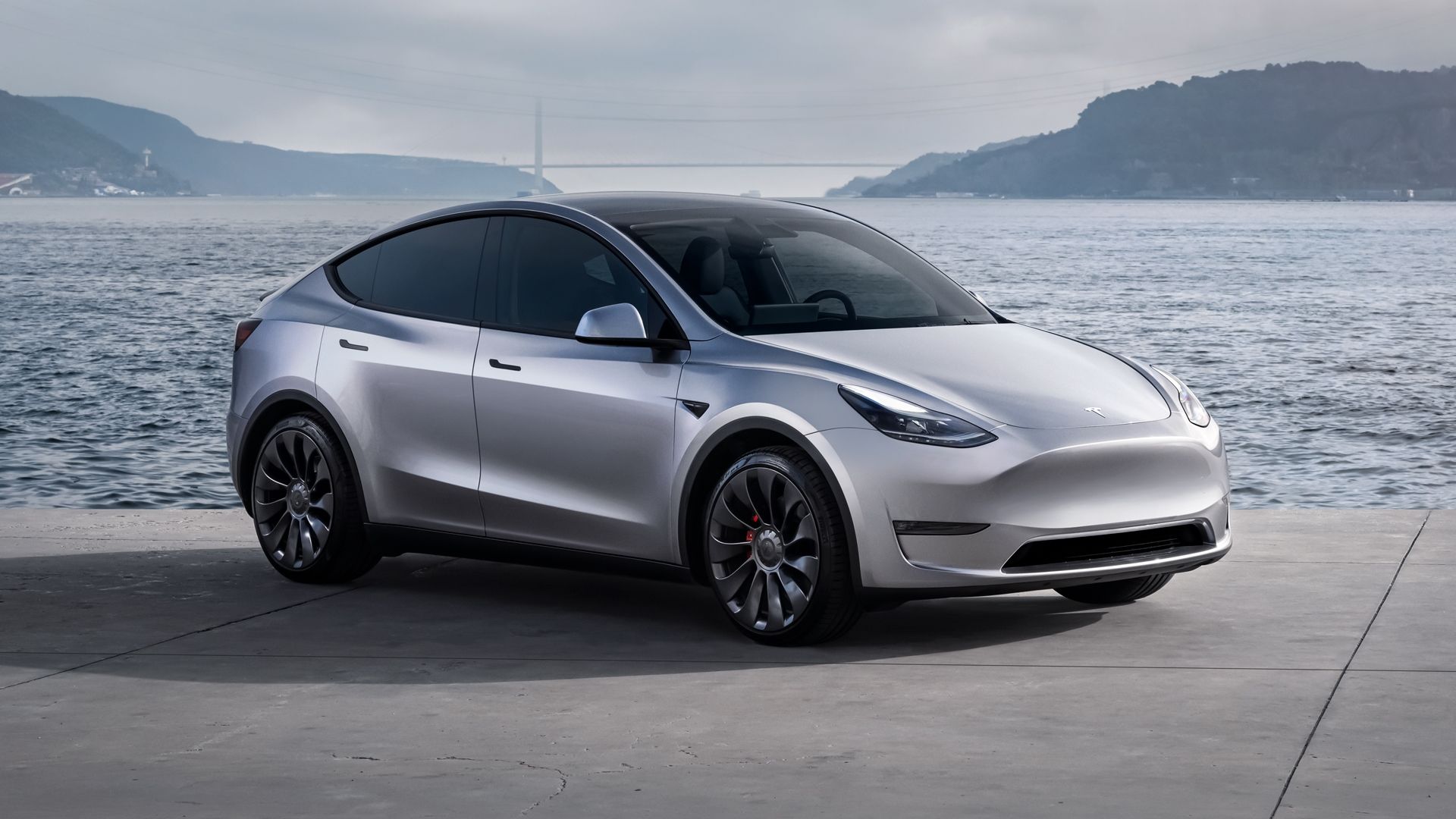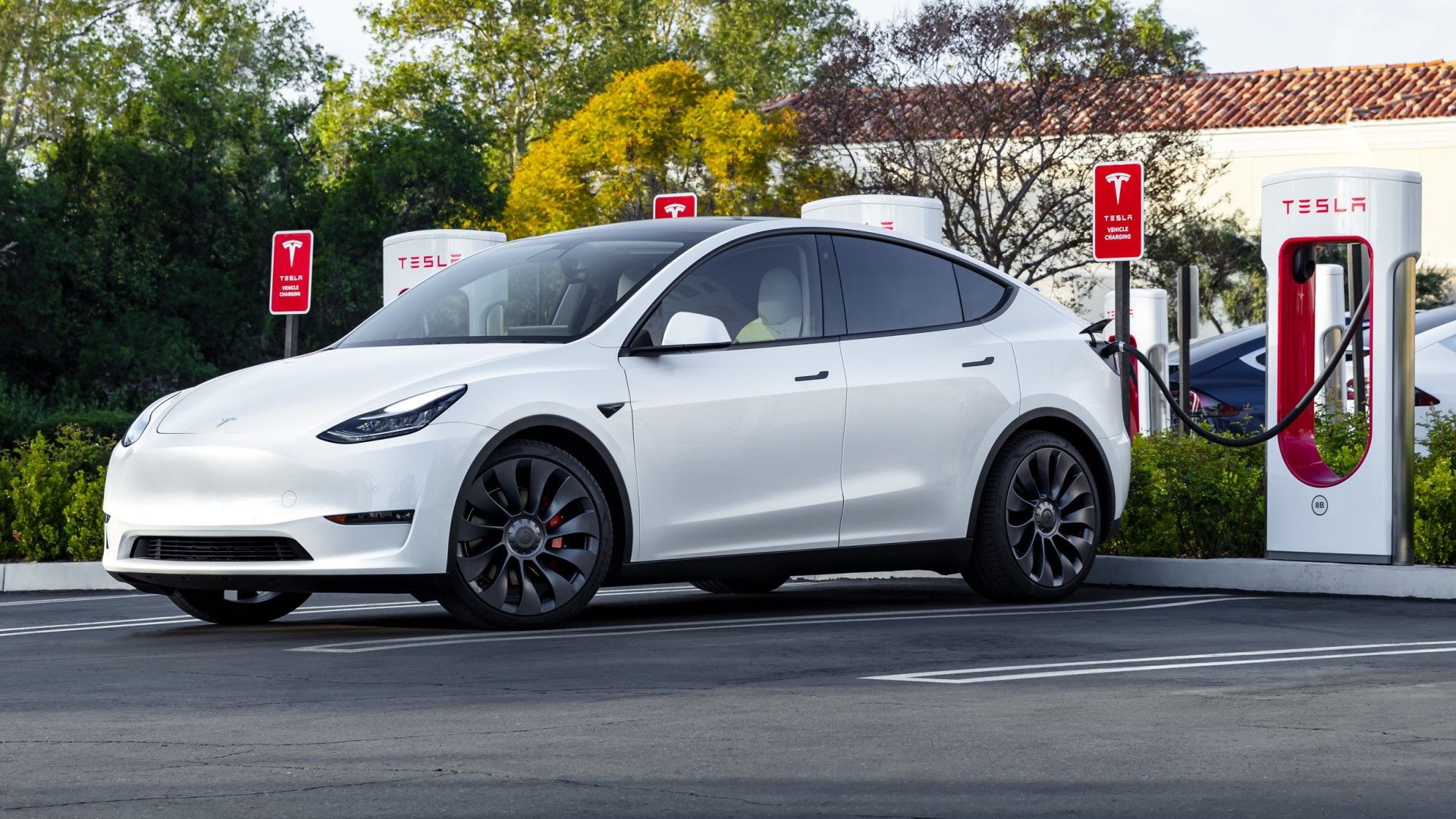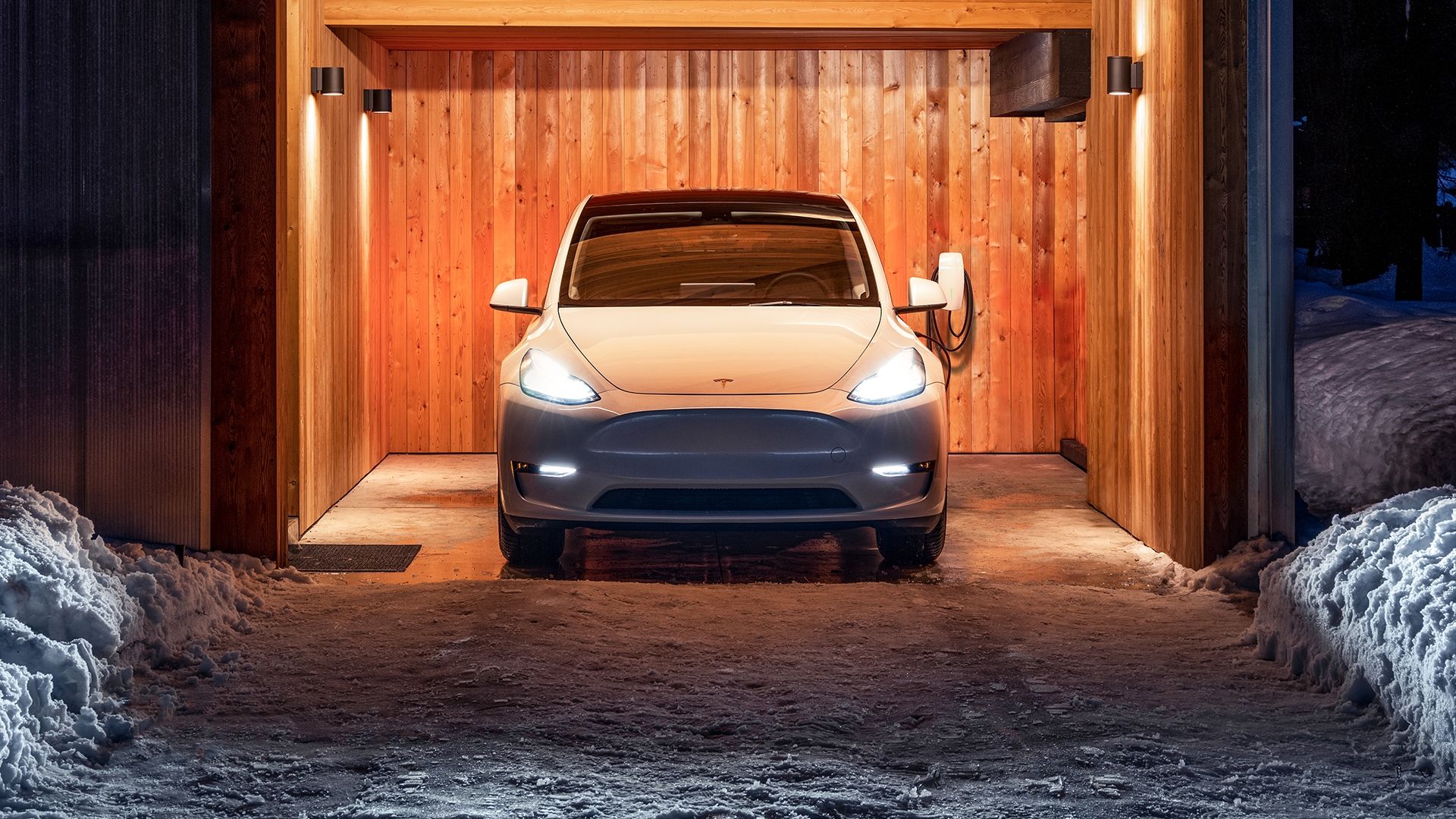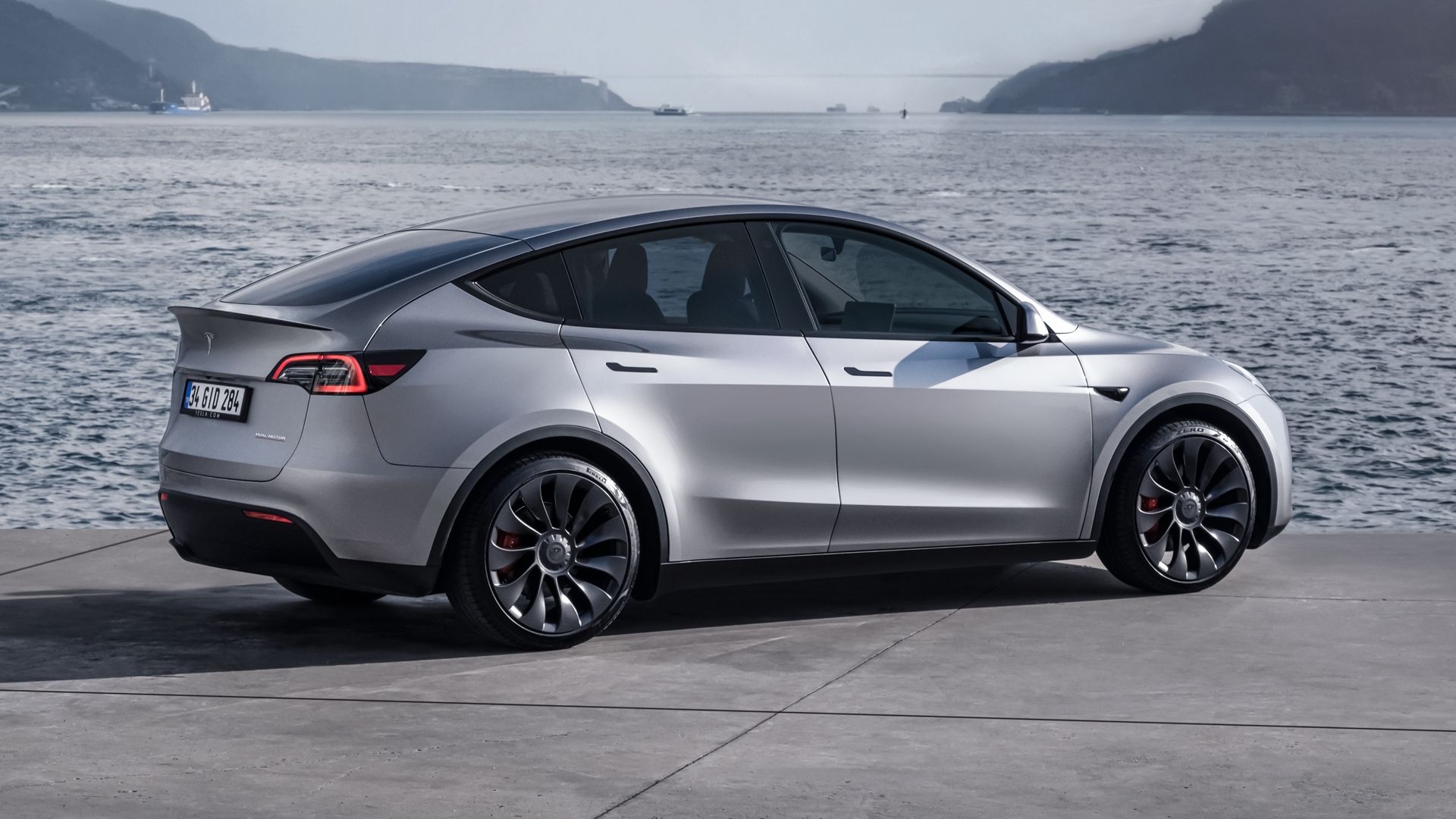The Tesla Model Y is one of the
most successful EV options
in the global market, and by a very noteworthy margin. The mid-size crossover represents one of the best combinations of versatility, performance, and efficiency with the bonus of starting at a very competitive starting price. The Model Y is available in the U.S. in three trims, starting with the base rear-wheel drive and Dual-Motor or Performance all-wheel drive. Tesla equips both drivetrains with a unique battery capacity for the sake of creating a balanced pricing strategy without compromising estimated range figures.
Understanding the Tesla Model Y’s
charging costs is a straightforward process
, thanks to it only being available with two battery options. The Model Y is the most popular choice in Tesla‘s current catalog, because it is a more accessible electric crossover that doesn’t compromise range, efficiency, or performance. If EV ownership is unfamiliar territory to you, you’ll be glad to learn that understanding the costs involved with recharging the battery is a very easy and straightforward process.
In order to give you the most up-to-date and accurate information possible, the data used to compile this article was sourced from Tesla websites and other authoritative sources, including the EPA, Bureau of Labor Statistics, and Consumer Reports.
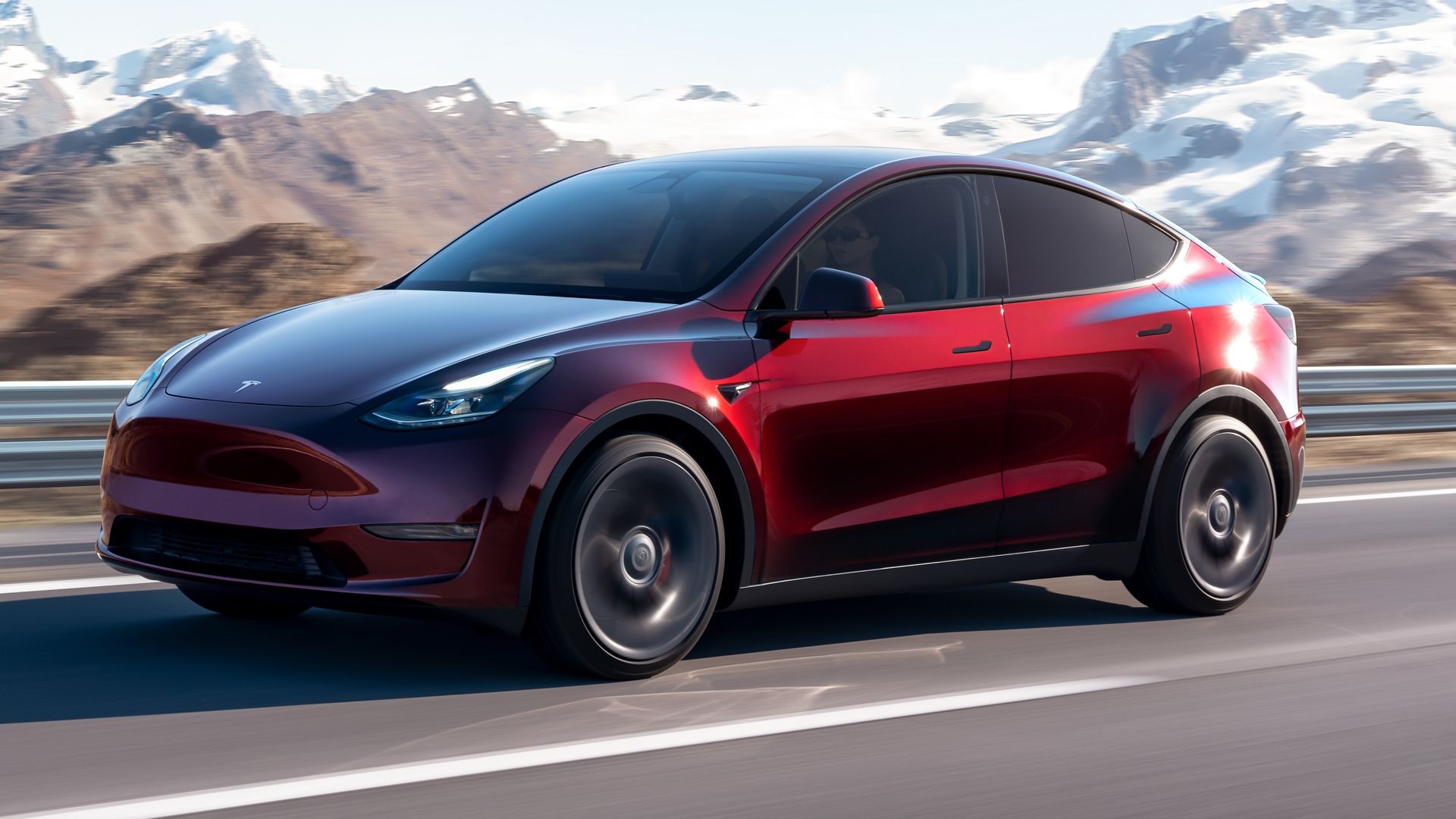
Model Overview
2024 Tesla Model Y
Dive into our comprehensive guide on the Tesla Model Y to make an informed decision on whether this is the EV crossover for you.
Understanding The Tesla Model Y’s Two Battery Options
Tesla Model Y pricing started at $38,990
when it still offered the base rear-wheel drive model, featuring a 57.5 kWh Prismatic LFP battery. This has now been replaced by a rear-wheel drive option with the extended battery pack, resulting in a $44,990 starting price. The $47,990 Dual-Motor Long-Range trim introduces a more powerful dual-motor all-wheel-drive system and a larger, 2170 79-kWh pack. The Performance model sits at the top of the range with a more powerful set of dual motors, but the same battery at $51,490.
Tesla And Panasonic’s Energy Storage Ventures
- Tesla and Panasonic have collaborated since 2010, with Panasonic supplying Tesla with battery cells for its electric vehicles.
- Panasonic produces Tesla’s lithium-ion batteries, which are a critical component in powering Tesla’s cars.
- Their partnership led to the construction of the Gigafactory in Nevada, where Panasonic manufactures batteries specifically for Tesla.
- The companies extended their agreement multiple times, with Panasonic also supplying batteries for Tesla’s energy storage products like Powerwalls.
- Despite periodic tensions over production bottlenecks and pricing, the relationship has remained strong, contributing to Tesla’s ability to scale EV production.
- In recent years, Tesla has sought more battery suppliers, but Panasonic remains a key partner, especially in developing next-generation battery technology.
Tesla sources all of its batteries from Panasonic, which has been its official battery supplier for well over a decade. The Japanese energy company still works with the American EV producer to further push the boundaries of battery technology, including exploring solid-state chemistries. Panasonic is also developing a production facility close to Tesla’s Texas plant so that it can improve the manufacturer’s supply chain, leading to faster and more efficient distribution times.
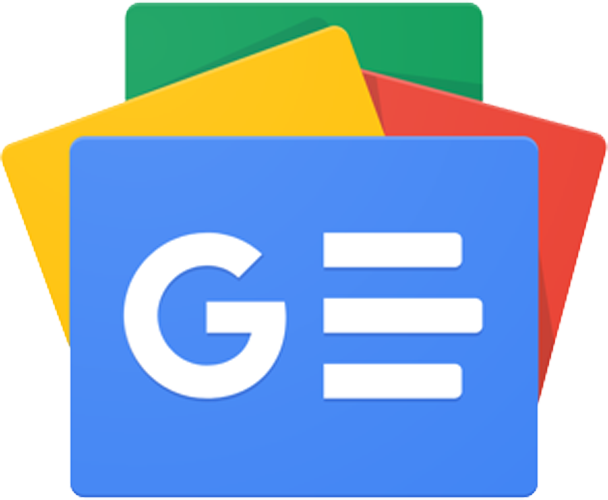
Add TopSpeed to your Google News feed.
The Tesla Model Y Takes 120 Hours To Charge
The base rear-wheel-drive features Tesla’s smaller 57.5 kWh pack. The EPA estimates it will cover 260 miles on a single charge and deliver a 28 kWh per 100 miles energy consumption estimate on the combined cycle. This battery takes around 91 hours to charge if you plug it into a conventional 120-volt Level One household plug.
A 240-volt Level Two fast charger
reduces this time to around 10 hours.
Tesla’s Supercharging network
recovers 10 to 80 percent of the battery in 25 minutes.
Tesla Model Y Range And Charging Times
| Battery Capacity | 57.5 kWh | 79 kWh |
| Range | 260 miles | 279-320 miles |
| Level 1 AC 110V Charging time (0-100%) | 91 Hours | 120 Hours |
| Level 2 AC 220V Charging time (0-100%) | 10.4 Hours | 11.5 Hours |
| Level 3 DC 440V Charging time (10-80%) | 25 Minutes | 27 Minutes |
The Long Range’s 79 kWh battery option increases the dual-motor Model Y’s range to 320 miles, while maintaining the same 28 kWh per 100 miles consumption estimate. The Performance derivative features the same battery, but with a lower 279-mile EPA-estimated range and 32 kWh per 100 miles combined energy consumption estimate. This larger battery takes 120 hours to charge when using a Level One system, 11.5 hours via a Level Two plug, and 27 minutes when fast charging.
The Tesla Model Y Costs $82 To Charge
The U.S. Bureau of Labor Statistics indicates that the average price of electricity in the U.S., across all states, is 17 cents per kWh. You’ll find the cheapest electricity in cities like St. Louis and Seattle, which charge around 13 cents per kWh. San Diego and San Francisco are quite a bit more costly, as residents have to spend as much as 42 cents per kWh.
Using these rates, you can expect the base battery will cost $7.50 for full recharge in cheaper states and $24.15 in the more costly areas. The national average cost to fully charge the base battery sits at around $9.78. You can reduce these times by recharging during off-peak energy hours, which are typically between 11 PM and 6 AM.
Tesla Model Y Charging Costs
| Standard 57.5 kWh Battery | Long Range 79 kWh Battery | |
| Low Rate States | $7.50 | $10.27 |
| High Rate States | $24.15 | $33.18 |
| DC Fast Charging | $27-58 | $41-82 |
The larger 79 kWh battery costs $13.43 to recharge, based on the national average rate. You’ll likely only have to pay $10.27 to recharge it in the less expensive regions, while higher-rate cities will require you to fork out as much as $33.18 to fully recharge.
Tesla’s Supercharging
costs range between 50 cents and $1 per kWh across all stations. This depends on how congested the stations are, so at most, you’ll pay $58 to charge the base battery and $79 to charge the larger pack. Half these prices if you aim to recharge your Tesla Model Y during off-peak times.
The Tesla Supercharging Network
The Tesla Supercharging network is a noteworthy attraction for the brand’s new and returning customers. Every Tesla owner has access to a selection of 2,263 strategically placed locations. Tesla also pinpoints the network’s locations in its onboard navigation system or via its smartphone app. These chargers operate at 250 kW, but Tesla confirms it is working on increasing outputs to 300 kW, affording users even faster charging times in between stops.
Tesla also opens its
Supercharging network to other manufacturers
who are a bit late to the EV game and don’t yet have a comprehensive national charging network. For this reason, together with the brand’s immense market success, some of the more popular charging locations often struggle with user congestion. This leads to frustratingly long waiting times and more expensive charging costs.
Tesla’s Household Level Two Wall Connector
When you purchase a Tesla Model Y, it does not come standard with a charging cable, but you can purchase one from the brand for $250. This cable is Level One and Level Two-compatible, and includes a
NEMA 5-15 and 15-50 adapter
, which lets you use it on different plug points. The cable also comes in a branded carry case, which fits in the front storage compartment.
Tesla also offers an effective Wall Connector for those wanting to benefit from Level Two household charging. This costs $450, but you will have to pay extra for installation, which will at most cost $2,000 in more expensive cities. The lowest you can expect to pay for installation is around $800. The Wall Connector comes with a 24-foot cable, which works effectively both inside and outside. You can also control and monitor the unit using the brand’s dedicated smartphone app.
Tesla Model Y Battery Warranty And Replacement Cost
If you are looking at buying a Tesla Model Y for long-term ownership, you must consider the costs involved when you inevitably have to replace the battery pack. Electric car batteries generally have a lifespan of between eight and 10 years. Elon Musk says the brand’s batteries can last up to 500,000 miles, but current Model S and Model X users say 200,000 miles is a more realistic figure. Tesla covers all battery defects with its eight-year or 120,000-mile battery warranty, and will even replace the battery if it loses 70 percent of its charge within this time.
Should your
Tesla Model Y fall outside this warranty
, you can expect to spend anywhere between $12,000 and $20,000 to have it replaced. This depends on the battery’s capacity and how severe the degradation is, as the brand will replace select faulty modules rather than the entire battery pack. Tesla battery packs can be replaced at independent workshops at a cheaper rate, but it is recommended to go to the manufacturer if you want the best results and the brand’s stamp of approval in your service book.

